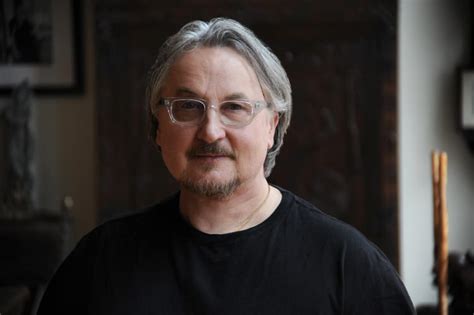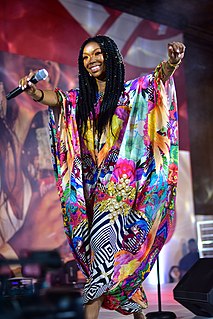A Quote by Margaret Atwood
I'm not sure I really am a Humanist. I describe myself as a rigorous agnostic, which means that you cannot declare as a matter of material truth something that is in fact a matter of spiritual belief.
Related Quotes
I am an atheist. There, I said it. Are you happy, all you atheists out there who have remonstrated with me for adopting the agnostic moniker? If "atheist" means someone who does not believe in God, then an atheist is what I am. But I detest all such labels. Call me what you like - humanist, secular humanist, agnostic, nonbeliever, nontheist, freethinker, heretic, or even bright. I prefer skeptic.
Why do people think the spiritual life demands withdrawal from the ordinary? Because they've been taught, at least by implication, that the physical is a block to the spiritual. When we assume that the spiritual, unlike the physical, is impervious to corrosion, then we assume that all things material are not to be honored. But the fact of the matter is, the material is the vehicle of the spiritual.
Our nature is intelligent. In fact, everything is intelligent. Intelligence for me is information. Information is intelligence. And then there is information driven by energetics. And the energetics is operated by the matter, which has manifested here. This is where you and I come in. The human body is matter. Plant material, and this tea I am drinking, is matter.
The leap of faith is a strategic impasse that confronts every Christian in search of converts; and, as he sees the matter, there is no wrong way to become a Christian. It is the end that is importnat, not the means; it does not matter why you believe, so long as you believe. For the philosopher, in contrast, the paramount issue is the justification of belief, not the fact of belief itself.
If God causes man to be sick, sickness must be good, and its opposite, health, must be evil, for all that He makes is good and will stand forever. If the transgression of God's law produces sickness, it is right to be sick; and we cannot if we would, and should not if we could, annul the decrees of wisdom. It is the transgression of a belief of mortal mind, not of a law of matter nor of divine Mind, which causes the belief of sickness. The remedy is Truth, not matter,--the truth that disease is unreal.
We are, in fact, hyper-dimentional objects of some sort which cast a shadow into matter, and the shadow in matter is the body. And at death, what happens basically, is that the shadow withdraws, or the thing which cast the shadow withdraws, and metabolism ceases, and matter which had been organized into a dissipative structure in a very localized area, sustaining itself against entropy by cycling material in and degrading it and expelling it, that whole phenomenon ceases, but the thing which ordered it is not affected by that.
As a philosopher, if I were speaking to a purely philosophic audience I should say that I ought to describe myself as an Agnostic, because I do not think that there is a conclusive argument by which one can prove that there is not a God. On the other hand, if I am to convey the right impression to the ordinary man in the street I think that I ought to say that I am an Atheist, because, when I say that I cannot prove that there is not a God, I ought to add equally that I cannot prove that there are not the Homeric gods.
Mr. Chairman, speaking for myself and myself only, it is my personal belief that allowing gays and lesbians to serve openly would be the right thing to do. No matter how I look at this issue, I cannot escape being troubled by the fact that we have in place a policy that forces young men and women to lie about who they are in order to defend their fellow citizens.
A lot of religious belief - even the majority - involves making factual claims about the world which do come into conflict with science and history. For Christians, a test of this is the Empty Tomb. I ask Christians: 'are you saying that it does not matter - as a matter of fact - whether or not Christ's tomb was empty and that he was resurrected?' At that point, I find that, to a lot of them, it really does matter, despite all the fine talk about not wanting to confuse science and history with religion.






































